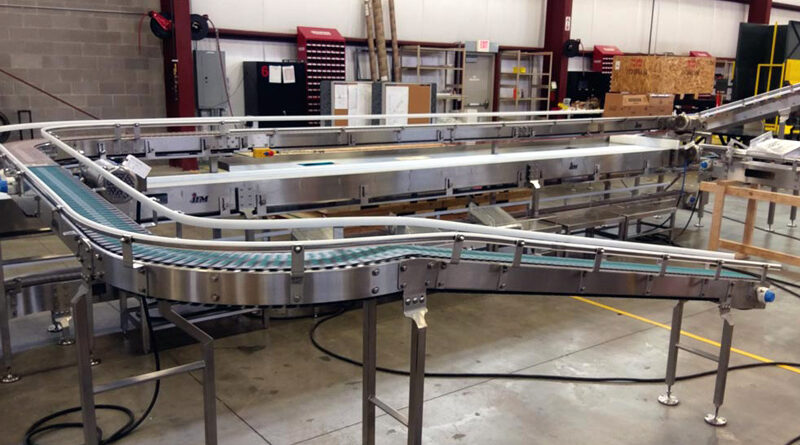Key Considerations for Food Conveyor Systems
Conveyors are an essential component in any kind of food-processing system as they work to support the best in productivity and efficiency. The right setup will streamline your operations and reduce labor while cutting overall costs and boosting output. But how do you know your food conveyor systems are the best? Here are eight things to consider.
Considerations For Your Food Conveyor System
#1 Sanitation Aware Design
Food production equipment requires excellent sanitation, so conveyors should be designed in a way that reduces the chance of contamination. Conveyors are generally made using stainless steel and are capable of handling high-pressure washings. They’re also easy to clean and have no crevices where bacteria will easily grow.
#2 Easy Cleaning
Enclosed motors, belt lifters, spray bars, and other components will help make washing down a conveyor system that much easier. So, keep these elements in mind when selecting a solution.
#3 Safety Features
Safety must be at the top of your list when handling processing equipment of any kind, and conveyors help to emphasize safety and reduce the chance of worker injury with narrower conveyor surfaces, appropriate shutoff switches, safety guards, and .
#4 Durable Construction
Food processing is a long and on-going if not nearly non-stop process. That means it puts many hard hours on equipment with minimal downtime and no chance of slowing down. Conveyors must run at maximum speed and capacity at all times, so durable construction is a must. Your conveyor must withstand not only constant use, but frequent cleanings with materials that are harder to damage, such as steel.
#5 Low Maintenance Requirements
Just as durability is important to ensure a conveyor system can withstand on-going usage requirements, low maintenance needs is also important when it comes to minimizing downtime. After all, when a conveyor system is down for maintenance, it impacts the efficiency and productivity of your entire company and lowers revenue as a result. Regular repairs add up in many ways, so opt for low maintenance to make the most of your system.
Some maintenance is unavoidable, of course, but comparing systems based on volume and need and staying on top of recommended preventative maintenance will help you stay ahead.
#6 Proper Belting
The type of belt you choose will depend on the products you’re manufacturing. Slippery or wet foods will need you to setup a system with mesh belting. Meanwhile, dry and solid foods will do best if you have a system with solid belts. In some situations, you can also invest in a system with ARB, or Activated Roller Belt, technology so that food can be sorted, aligned, and merged automatically, significantly reducing human labor.
#7 Throughput Capacity
Throughput capacity may seem like an obvious aspect to consider, but it’s worth the reminder since a system incapable of keeping up with necessary product output will never allow you to achieve optimal operational efficiency, at least not without putting extreme pressure on the system, which would lead to additional maintenance costs and downtime.
#8 Customized Design
Customizing a conveyor system will help ensure your operations have a solution that is precisely engineered to handle your throughput capacity and any other specialized requirements, so consider customized design for your conveyor system before buying an off-the-shelf solution.
Contact IPM Today
Located in the heart of West Michigan, IPM is a leading manufacturer and integrator of downstream packaging line equipment. We serve both US and International clients in the food and beverage industry. If you are interested in learning more about our food conveyor systems, contact us today at (616) 531-7758 or fill out our online form to request a quote.













